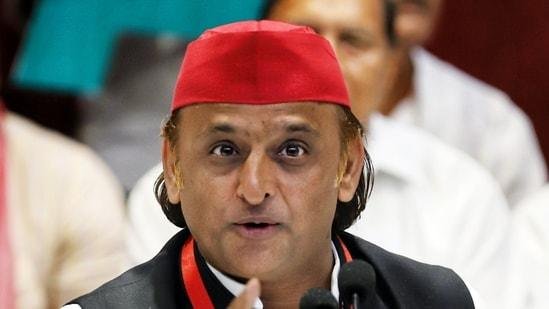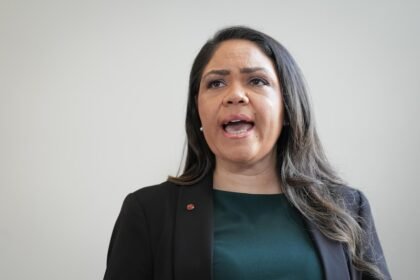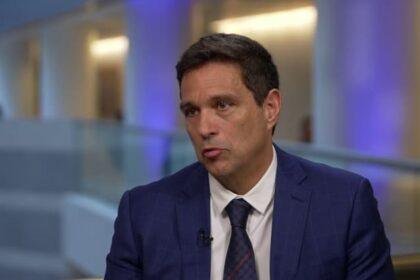Akhilesh Yadav Outlines Strategy for Upcoming Elections, Cautions Against BJP Tactics
In a recent address at the Samajwadi Party (SP) headquarters in Lucknow, Akhilesh Yadav, the party president and former Chief Minister of Uttar Pradesh, laid out a strategic plan for the upcoming elections. He emphasized that candidates would only be selected after thorough surveys to ensure that only those with a strong chance of winning would receive party tickets. This approach reflects a calculated effort to strengthen the party’s position ahead of the 2027 Assembly elections.
Focus on Voter Engagement
During his address to party leaders and workers from Bulandshahr and Hapur districts, Yadav urged SP cadres to remain actively engaged with the electorate. He stressed the importance of maintaining contact with voters and staying vigilant against what he described as “dishonest” tactics employed by the Bharatiya Janata Party (BJP). Yadav warned that the BJP might attempt to manipulate the electoral process, including vote-cutting strategies, and called on his party members to be alert to these potential conspiracies.
“The party tickets will be given only after proper survey and only those who can win will be given the tickets,” Yadav stated. His remarks underscore a shift towards a more data-driven approach in candidate selection, a strategy that has gained traction in modern electoral politics.
Allegations Against the BJP Government
Yadav did not shy away from criticizing the current BJP government, accusing it of rampant corruption and land grabbing. He claimed that BJP leaders were encroaching on government properties, including public lands and ponds, which he argued disproportionately affected the poor. “This government has reached the peak of loot. Every department is mired in corruption. BJP is a party of land mafia,” he alleged.
These accusations are not new; they echo a long-standing narrative among opposition parties in India, particularly in Uttar Pradesh, where allegations of corruption have often been a focal point in political discourse. The SP has historically positioned itself as a champion of the marginalized, and Yadav’s statements aim to reinforce this image.
Economic Concerns and Public Sentiment
Yadav also highlighted the economic challenges facing the state, claiming that inflation has surged since the BJP took power. He pointed to a lack of job opportunities for youth and a decline in industrial investment as critical issues that have left the public disillusioned. “People are tired and want to get rid of the BJP at the earliest,” he asserted, suggesting that the electorate is increasingly ready for a change in leadership.
The economic landscape in Uttar Pradesh has been a contentious topic, especially given the state’s significant population and its role as a key player in India’s economy. Yadav’s focus on economic grievances resonates with many voters who feel the impact of rising prices and stagnant job growth.
Commitment to Social Justice
In his address, Yadav also made a point to address the concerns of marginalized communities, specifically the Pichhda, Dalit, and Alpsankhyak (PDA) groups. He accused the BJP government of consistently undermining these communities and promised that the SP would prioritize their honor and justice if elected back to power. This commitment to social justice is a cornerstone of the SP’s platform and aims to galvanize support from these crucial voter demographics.
The Road Ahead
As the political landscape in Uttar Pradesh continues to evolve, Yadav’s strategic focus on surveys for candidate selection, voter engagement, and social justice could play a pivotal role in shaping the SP’s electoral fortunes. The party’s ability to effectively communicate its message and mobilize support will be critical as it prepares for the upcoming elections.
The 2027 Assembly elections are still a few years away, but the groundwork being laid by Yadav and the SP could have lasting implications. With the BJP facing increasing scrutiny over its governance, the SP is positioning itself as a viable alternative, aiming to capitalize on public discontent.
Conclusion
Akhilesh Yadav’s recent statements reflect a strategic recalibration for the Samajwadi Party as it gears up for the 2027 elections. By emphasizing thorough candidate selection, voter engagement, and a commitment to social justice, Yadav aims to strengthen the party’s appeal among the electorate. As political dynamics shift in Uttar Pradesh, the SP’s ability to resonate with voters will be crucial in determining its success in the upcoming electoral battle.











